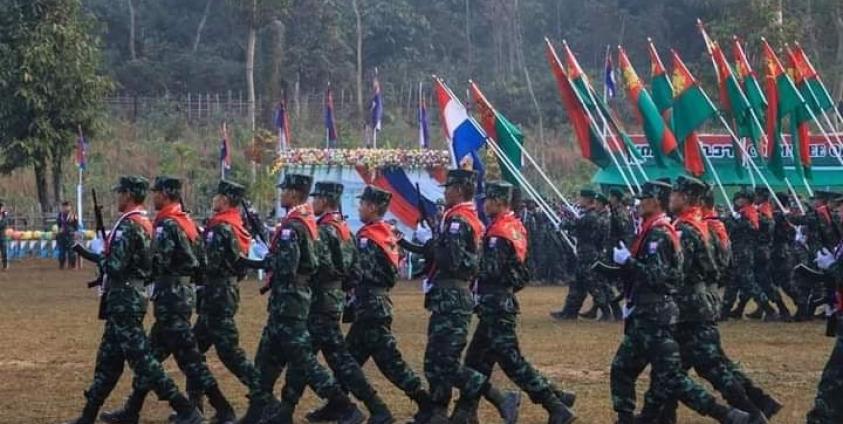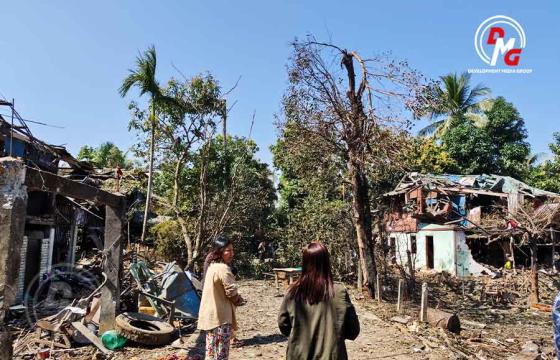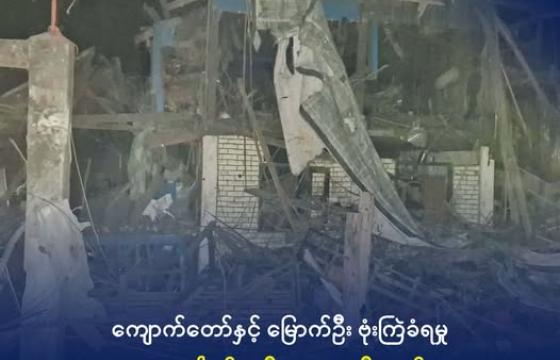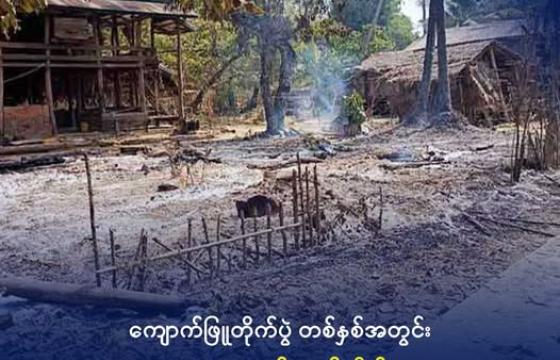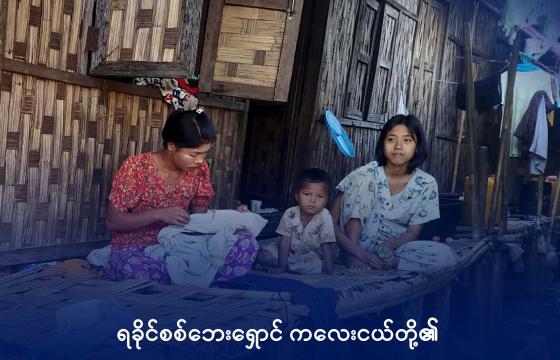The Karen National Union (KNU) on December 20 asked the United Nations to designate a “no-fly zone” in Kayin State, saying the Myanmar military had used excessive force including airstrikes in recent clashes with the Karen National Liberation Army (KNLA) during fighting centred around the town of Lay Kay Kaw.
The Lay Kay Kaw region and neighbouring Thailand is now home to thousands of displaced people, and the KNU called on the UN to hold an emergency meeting and declare a no-fly zone as fighting between the Myanmar and a joint force of KNLA, People’s Defence Force (PDF) and Democratic Benevolent Army (DKBA) troops has intensified since December 15.
A source close to the KNU told DMG that the fighting started when Myanmar military troops stormed the Lay Kay Kaw area and forcibly arrested locals, pro-democracy activists, and some who qualify as both. The KNU has called on the United Nations to establish a no-fly zone because the use of air force by the Myanmar military violates the Geneva Conventions, the source added.
“The fighting broke out due to the Myanmar military’s deliberate use of force to arrest locals and civilians. Now, with more casualties on the Myanmar military side, tanks and fighter jets are being used. The artillery shells fired by the Myanmar military have fallen into the refugee camps and Thailand. That is why the KNU has called on the United Nations to declare a no-fly zone,” the source explained.
The Myanmar military (Tatmadaw) has not yet commented on reports of airstrikes on KNLA positions in the Lay Kay Kaw fighting, which began on December 15.
Fighting between the Tatmadaw and the KNLA in and around Lay Kay Kaw has forced more than 10,000 civilians to flee their homes near the Thai border in recent days. The KNU has urged the Thai government, the international community and the Myanmar people to provide humanitarian assistance including food and medicine to those displaced by the conflict.
The KNU-affiliated Karen National Defense Organization (KNDO) on December 18 issued a warning to the Karen people that despite the withdrawal of large numbers of Myanmar troops from the Lay Kay Kaw area, fighting could escalate once again.
Conflict is likely to intensify and the Myanmar military will be weakened, according to a military analyst who spoke on condition of anonymity, who added that fighting in some areas could lead to an increase in the number of Tatmadaw defectors and casualties.
“Now, the Myanmar military can be seen to be weak in the long run due to the military rivalry between the two sides. Fighting is occurring in Kachin, Shan and Chin states, and Sagaing Region. It could lead to a mass exodus of junta soldiers in the long run,” the military analyst added.
At least five refugees including elderly people are being treated at a hospital in Mae Sot, Thailand, after they were injured when artillery shells fired by the Myanmar military landed in the Thai border town, which has hosted Myanmar refugees for decades. The Royal Thai Army has deployed a significant number of troops to the border and is monitoring the situation, according to Thai sources.


